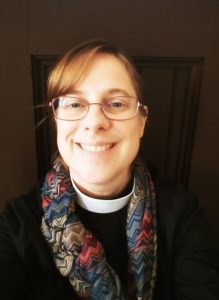Go to the Funeral
“There was a funeral at school today.”
I don’t suppose that’s something you often hear, but that was how my youngest son answered a recent “How was school?” query. Usually, since he’s sixteen, his response is mundane, often a little cynical. Why describe the school day when a grunted “Boring” will suffice? The funeral, however, had got his attention, and he was ready to talk.
I had known there would be a funeral that day at school. The principal had sent out an email the night before, encouraging parents to discuss the arrangements with their children, especially the younger ones, and giving us the option of having them attend a study hall instead. Since all the students in the high school can choose study hall instead of chapel anyway, discussing the funeral with my teenager was not high on my priority list, so it caught him by surprise.
One of the school’s benefactors, an elderly gentleman who never had children of his own, had passed away the week before. I thought it was particularly touching that the chapel in the school he had so generously supported would host his funeral. My son saw it differently: “They had the body there, and a priest and everything.” As an adult, this made perfect sense to me—that a Catholic school would have a Catholic funeral for a Catholic man. I was tempted, but resisted my own inner teenager’s urge to answer my son by saying, “Well, duh!”
Yet while it made perfect sense in one context, my son was right, too. I’ve never heard of a funeral being held in a (Pre-K through 12th Grade) school chapel on a school day, and doubt I ever will hear of another one. Nothing seems further from the realm of small children than the funeral of a 95-year-old man none of them knew. There is no sharper contrast between getting educated and growing up than growing old and dying.
A few years ago, I came across an internet meme that made a poignant observation: When we were children, what we failed to notice was that as we were growing up, our parents were growing old. I would quibble with it, since my children are now mostly grown, and I certainly do not consider myself to be mostly old. Nonetheless, the point stands: Community requires that people of all ages and stages of life walk together on a common journey. History may seem linear, with generations grouped together by similarities and staying each in their own place. Community, however, is more fluid, transcending personal preferences and relationships. We do well, once we have reached enough maturity to make the attempt, to look beyond our own place in that community and love others as they truly are, whatever their races, habits, fears, hopes; whatever their place in our world.
Though none of the children knew him, this man was a part of their community, walking unseen alongside them for many years. He supported their education. He likely prayed regularly for them, without ever knowing any of their names. It was fitting that they be the ones to commend him to the Lord at the last.
My son, being sixteen and finding funerals creepy (his word!), and funerals for strangers very weird indeed, disagreed. I cannot recall what life-altering words of maternal wisdom I shared with him after he wound down his teenaged rant about funerals. I have learned to love the times when my sons talk to me, even if they are carrying on about their developing, and usually rather tedious, opinions on the world around them. His soapbox was more important to the moment than any thoughts I might have had on the subject.
Still, what I hope he will remember when he is old and grey (oh, dear Lord, may I live long enough to see him with grey hair for all the ones he has given me) are all the funerals for strangers that came his way, all the times he supported a grieving friend, all the times he saw the Church commend her own to God—and all the times he went to a funeral just because it was the right thing for someone to do.
Funerals are, very simply, the Church being who she was created to be: a midwife to escort each of us into the life to come—and a joyous, grieving, awkward community along the way.










